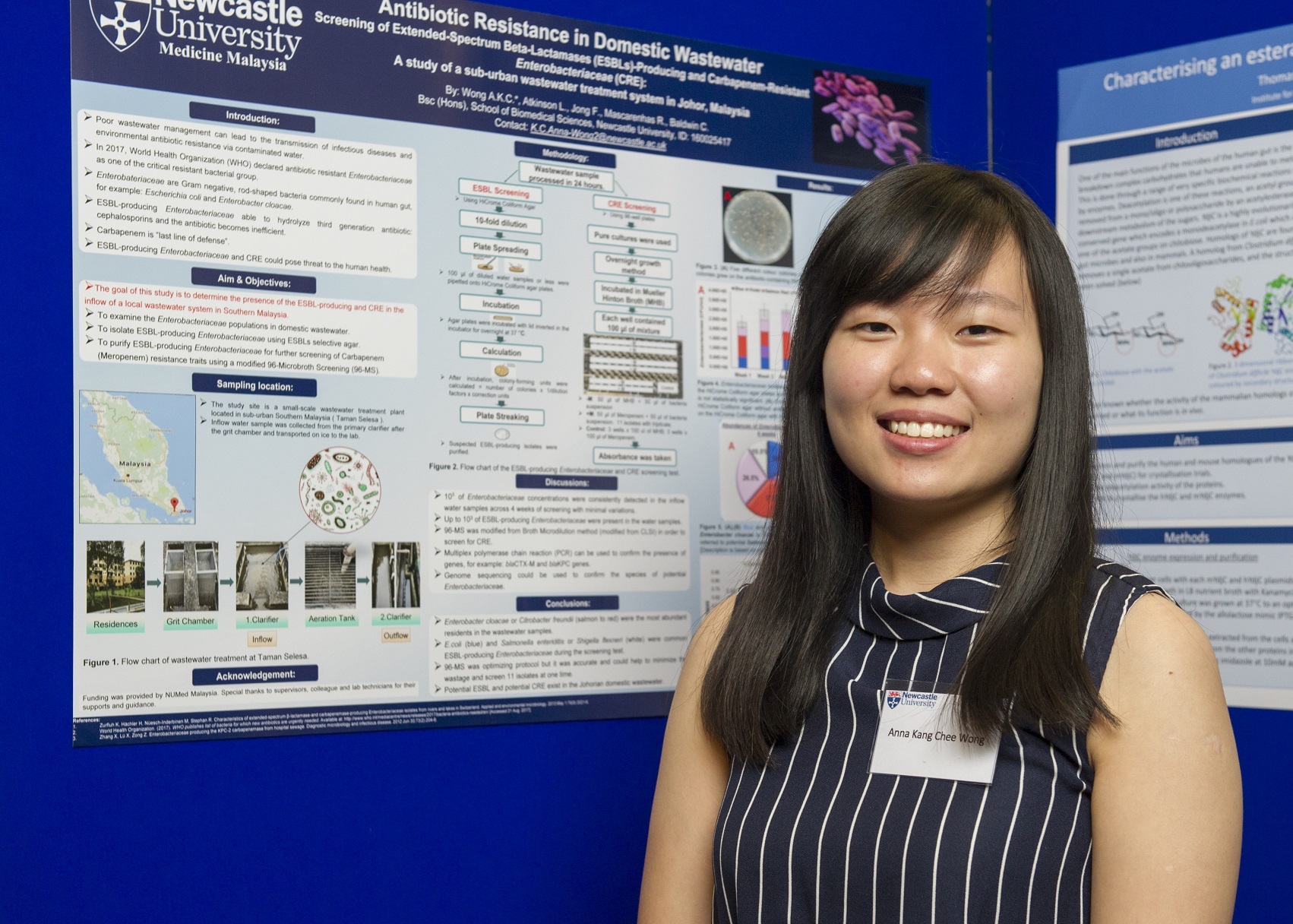2017 Participants
 Anna Kang Chee Wong
Anna Kang Chee Wong
- BSc Biomedical Sciences (2+ 1 NUMed)
- Antibiotic Resistance in Domestic Wastewater: Screening of Extended Spectrum Beta-Lactamases (ESBL)-Producing and Carbapenem-Resistant Enterobacteriaceae (CRE).
Enterobacteriaceae are rod-shaped bacteria that are commonly found in the human gut. Extended Spectrum Beta-Lactamases (ESBL)-producing Enterobacteriaceae can produce enzymes that are capable of destroying antibiotic. Carbapenem (antibiotic) is used to kill the ESBL-producing Enterobacteriaceae. However, Carbapenem-resistant Enterobactericeae (CRE) had been discovered.
In 2017, the World Health Organization (WHO) declared that antibiotic resistant Enterobacteriaceae as one of the group of critical resistant bacterial group. The objectives of this study are to determine. Enterobacteriaceae populations, the presence of the ESBL-producing and CRE in the inflow of a local wastewater system in Malaysia. Growth medium with chromogenic substances (different
coloration in different bacteria colonies) was used for ESBL-producing
Enterobacteriaceae screening. Potential Enterobacter cloacae or Citrobacter freundii were the most abundant residentsin the wastewater. Escherichia coli and potential Salmonella enteriditis or Shigella flexneri weremost common ESBL-producing Enterobacteriaceae. This study discovered that ESBL-producingand potential CRE exist in the wastewater and capable to pose threat to human health.
Funding source: NUMed Malaysia
Supervisor: Dr Roshan Mascarenhas
